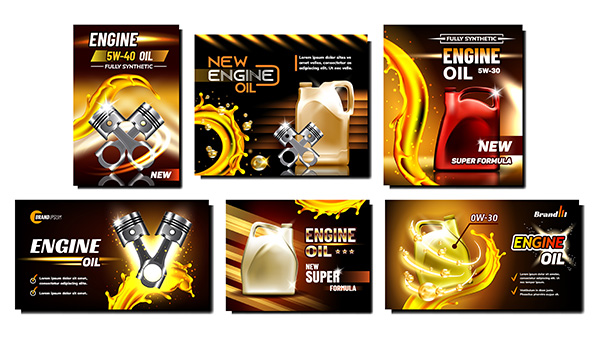
When it comes to maintaining your car, choosing the right engine oil is essential. You've probably heard about synthetic and conventional engine oils, but what exactly sets them apart? In this article, we'll explore the key differences between synthetic and conventional engine oils, helping you make an informed decision for your vehicle.
Conventional Engine Oil
Conventional engine oil, often called mineral oil, is derived directly from crude oil. It's the traditional choice for many drivers and has been around for decades. This type of oil is refined to remove impurities, but it still contains certain elements that can affect its performance over time.
Conventional oil is generally cheaper than synthetic oil, making it a popular choice for those on a budget. However, it requires more frequent changes, typically every 3,000 to 5,000 miles, depending on your driving habits and conditions. It's best suited for older vehicles or those with simple engine designs that don't require the enhanced protection offered by synthetic oils.
What Makes Synthetic Engine Oil Different?
Synthetic engine oil is artificial and designed to provide superior performance and protection. Unlike conventional oil, it is chemically engineered from base oils that have been altered at the molecular level. This process removes impurities and allows the oil to be tailored for specific properties and performance characteristics.
One of the main benefits of synthetic oil is its consistency. It remains stable across various temperatures, offering better protection in extreme conditions. Synthetic oils also contain additives that enhance their performance, such as detergents, dispersants, and friction modifiers, which help keep your engine cleaner and running more efficiently.
Performance and Protection
Temperature Resistance
One of the standout features of synthetic oil is its ability to perform well under extreme temperatures. Whether you're dealing with the scorching heat of summer or the freezing cold of winter, synthetic oil maintains its viscosity better than conventional oil. This means it flows more freely at low temperatures and provides better lubrication at high temperatures, reducing wear and tear on your engine.
Engine Cleanliness
Synthetic oils often come with advanced detergent additives that help keep your engine clean by preventing sludge formation and deposits. Conventional oils contain detergents and are more prone to breaking down and forming sludge, especially under high-stress conditions. A cleaner engine runs more efficiently and has a longer lifespan.
Frequency of Oil Changes
One of the practical advantages of synthetic oil is its longevity. Synthetic oils can last anywhere from 7,500 to 15,000 miles between oil changes, depending on the specific formulation and your driving conditions. This is significantly longer than the 3,000 to 5,000-mile interval recommended for conventional oils. While synthetic oil is more expensive upfront, the extended interval between changes can offset the higher cost over time.
Cost Considerations
Cost is often a deciding factor when choosing between synthetic and conventional engine oil. Synthetic oil is generally more expensive due to the complex manufacturing process and the advanced additives used. However, the extended oil change intervals and better engine protection it offers can make it a cost-effective choice in the long run. Conventional oil is less expensive per quart, but the need for more frequent changes can add up over time.
Which Oil Is Right for Your Car?
The choice between synthetic and conventional oil depends on various factors, including your vehicle's age, engine type, driving conditions, and budget. Here are some guidelines to help you decide:
- Newer Vehicles: Many modern engines are designed to run on synthetic oil. Check your owner's manual to see the manufacturer's recommendation.
- Older Vehicles: Conventional oil may be sufficient for older engines that don't require the high-performance properties of synthetic oil.
- Extreme Conditions: Synthetic oil's superior performance in extreme temperatures can benefit drivers who frequently drive in very hot or cold climates, do a lot of towing, or perform heavy-duty driving.
- Budget: If cost is a major concern and your driving habits are relatively mild, conventional oil can be a suitable choice.
Environmental Impact
Another factor to consider is the environmental impact of your oil choice. Synthetic oils are more refined and have a longer lifespan, meaning fewer oil changes and less waste. However, the production process for synthetic oil is more energy-intensive.
Conventional oils are derived from crude oil, a non-renewable resource, and their more frequent change intervals lead to more waste oil. Choosing high-quality synthetic oils can reduce the frequency of oil disposal, contributing to a smaller environmental footprint.
Choose the right engine oil to ensure your car gets the best care possible. Visit Davenport Motor Company today for expert advice and top-quality oil changes. Schedule your appointment now!